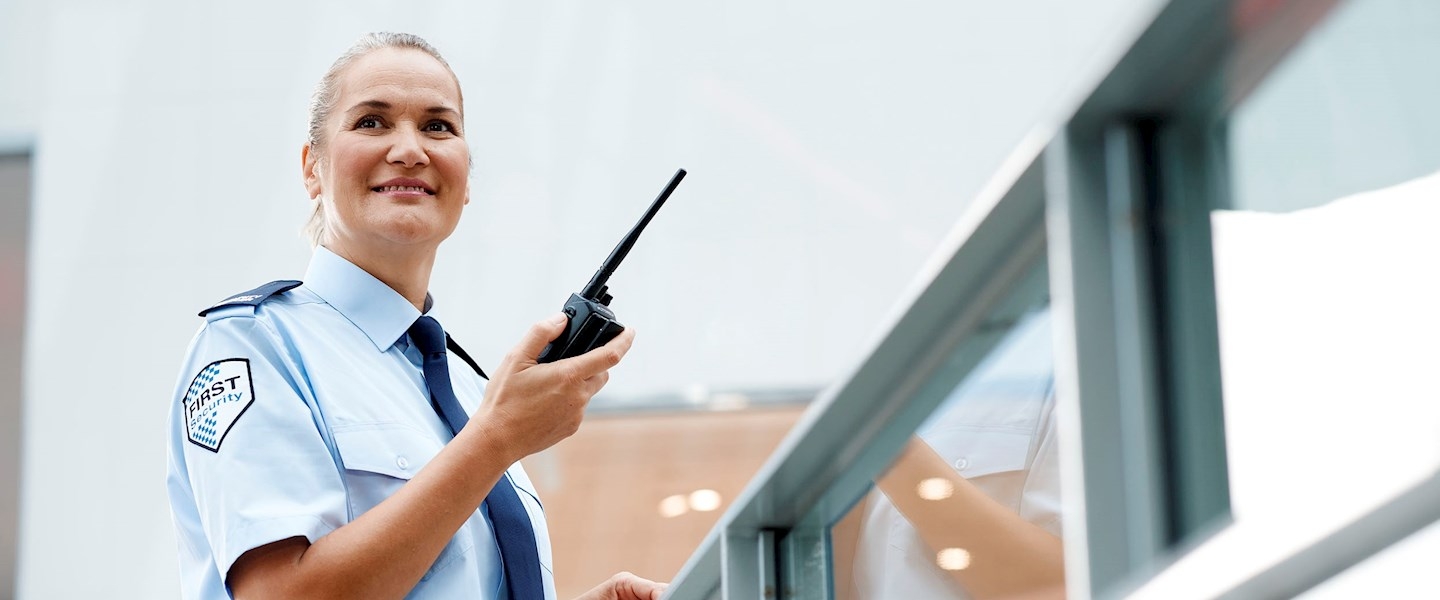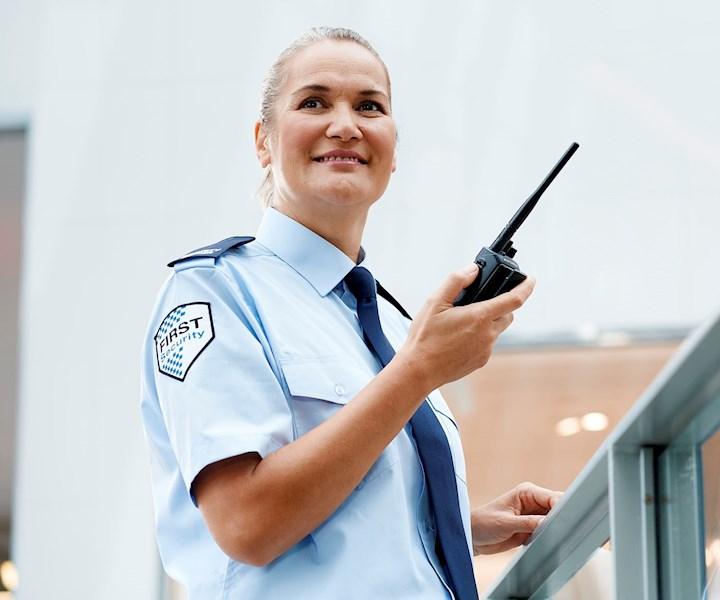Celebrating our Women in Security on International Women’s Day


As we celebrate International Women’s Day today, we take the opportunity to reflect on the role of women in security and seek perspectives from a couple of the leading women of FIRST Security.
Security is an industry in which women have been traditionally under-represented. The stereotypical security officer is male, and physically intimidating. Search ‘security officer’ in Google Images and you’ll see what we mean!
“I know first-hand what it feels like to work in a male-dominated industry, and how women need strong female role models to inspire confidence and ambition,” said Natasha Pennell, FIRST’s Wellington-based Account Manager. “When I started at FIRST Security three years ago, our work force was predominately male. There were no Senior Female managers.”
“Fast forward to the present day and I’m proud to say huge progress has been made at Senior Management level and the mix at Security Officer level is moving towards equal.”
Out of FIRST’s over 2,000 staff, 27.35 percent are female, and 72.65 percent male. Among our field officers, 20 percent are female and 80 percent are male, but in our Monitoring Centre and National Operations Centre the tables are turned, female representation at 77 percent and 63 percent respectively.
In terms of management roles at FIRST, 33 women are currently in the roles of Team Leader, Supervisor and Manager.
“I currently have 75 staff from Coromandel through to Eastern Bay of Plenty,” says Jill Priest, FIRST’s Tauranga-based Client Services Manager. “32 of the 75 are female. My guarding, patrols and electronic monitoring field team leaders are all female.”
“We have a total of 20 patrol and regulatory compliance officers across the region, and eleven of these roles are filled by females. Their duties include responding to offender monitoring alerts, noise complaints, animal attacks, strays, enforcing council regulations and patrolling. All eleven work full time rotating 24/7 rosters and they do a great job.”
“Other females in our team perform guarding duties, some on full time permanent contracts, others on a casual basis,” Jill explains.
“Their duties range from customer service and loss prevention duties for national clients, night security at Te Wananga campuses, client staff safety, and district court security. One of our female staff attends the Council pound every afternoon during the week to clean, assist in dog microchipping, exercise the dogs and help train dogs that are up for adoption.”
The increasing representation of women in security reflects changes in how security is conducted, an evolving focus on conflict management and de-escalation, and a nod to the specific qualities women bring to contemporary security roles.
“Being naturally empathetic and observant we are able to think critically and outside the box,” says Natasha. “Women tend to be quite creative in their approach to situations, are very good at proposing alternative ways to overcoming challenges.”
“A career in security was once considered only for men who looked physically intimidating. In 2020 size and stature does not matter. The only tool you need to be good at security is your mind.”
Jill agrees. “The combination of females in all areas is extremely beneficial,” she says. “I have quite a number of younger male guards so they work well alongside the females and there is an obvious respect for the knowledge and differing opinions that females bring to the job.”
Skills that make a great security officer, says Natasha, are summarised in the ‘Six Cs’ – critical thinking, communication, collaboration, calm, collected, and controlled. For Jill, the key qualities are empathy, compassion – “but first and foremost a good sense of community and justice.”
As security has evolved, it’s also become an increasingly attractive career option for women.
“When I started with FIRST, my daughter required full time care due to a health disability so it was easier for me to work nights and be available during the day to fit in hospital/doctor visits and to be at home when she couldn’t attend school,” Jill recalls.
“I recently had a mother who worked five nightshifts a week from 6pm to 12:30am. When her husband got home from work he took over the household duties while she went to work. They were saving to buy their first home so the ability for both mum and dad to work helped immensely.”
“They’ve now purchased their first home. The other benefit is that mum gets the opportunity to go out into the workplace and spend some time with grown-ups!
Women are involved in all aspects of our organisation, and hold key leadership positions throughout the country. Women make up 30% of our team of 2000, and we hope to see this number continue to rise, as more and more women see security as an exciting, varied and rewarding career path.

